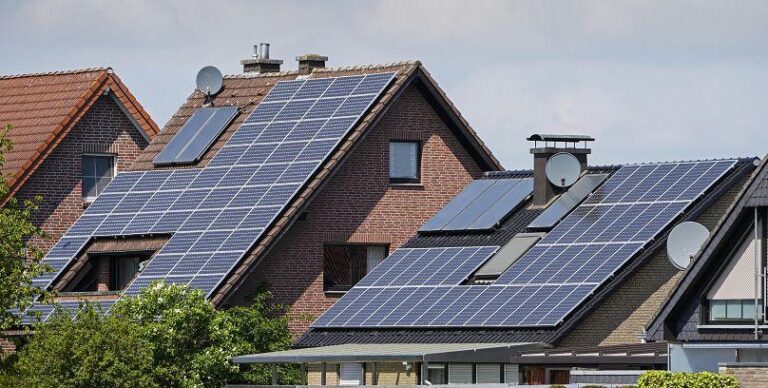Germany has reached a significant milestone in its ambitious push toward renewable energy, with the industrial sector now halfway to meeting the country’s 2030 solar energy target. According to recent reports, solar power installations in German industry have surged, reflecting a robust commitment to sustainable growth and decarbonization. This progress underscores Germany’s role as a leader in the global transition to clean energy, as it strives to reduce greenhouse gas emissions and secure a greener future by the end of the decade.
Germany’s Solar Energy Progress Signals Strong Momentum Toward 2030 Targets
Recent reports highlight a significant leap in Germany’s adoption of solar energy, with the country already achieving half of its ambitious 2030 target. This advancement is attributed to improved government incentives, streamlined permitting processes, and increasing investment from both private and public sectors. Germany’s solar capacity has expanded not only through residential rooftop installations but also via large-scale solar farms, driving a diverse and resilient energy mix.
Key factors contributing to this momentum include:
- Enhanced subsidies for photovoltaic (PV) technology and battery storage systems.
- Accelerated grid modernization efforts to accommodate decentralized power generation.
- Growing corporate commitments to renewable energy sourcing.
| Year | Installed Solar Capacity (GW) | Percentage Towards 2030 Target |
|---|---|---|
| 2020 | 54 | 40% |
| 2023 | 68 | 50% |
| 2030 (Goal) | 136 | 100% |
Challenges and Opportunities in Scaling Solar Infrastructure Across the Country
Scaling solar infrastructure nationwide presents a complex mix of hurdles and prospects. Grid integration remains a significant challenge as the existing electrical network requires extensive modernization to handle the intermittent nature of solar power. Moreover, land availability and regulatory bottlenecks often delay project approvals, creating a backlog that threatens to slow down momentum. Community acceptance, particularly in densely populated urban areas, is another factor that calls for innovative solutions to balance energy needs with environmental and social considerations.
Despite these obstacles, the rapid technological advancements and favorable policy shifts provide a promising landscape for expansion. Enhanced battery storage technologies and smart grid solutions are paving the way for more reliable and efficient solar energy deployment. Additionally, government incentives and streamlined permitting processes are fostering a competitive market environment that encourages private investment. The table below summarizes key challenges alongside emerging opportunities that could define the future trajectory of Germany’s solar ambitions.
| Challenges | Opportunities |
|---|---|
| Grid capacity constraints | Smart grid modernization |
| Land use conflicts | Agrovoltaics and rooftop solar expansion |
| Lengthy regulatory approvals | Digitization of permitting |
| Intermittency of solar supply | Advanced energy storage systems |
| Public opposition in some regions | Community-based solar projects |
Strategic Recommendations to Accelerate Germany’s Renewable Energy Transition
To expedite Germany’s solar energy expansion, it is critical to foster a collaborative framework between government bodies, private industry, and local communities. Enhanced investment in grid infrastructure will alleviate bottlenecks hindering the integration of new solar capacity. Simultaneously, streamlined permitting processes can drastically reduce project lead times. Focusing on decentralized solar projects, such as rooftop installations, will stimulate regional energy self-sufficiency and create new economic opportunities, especially in rural areas. Additionally, innovation incentives targeting energy storage solutions should be amplified to address intermittency challenges associated with solar power.
The following table summarizes key strategic priorities and their anticipated impact on reaching the 2030 solar target:
| Strategy | Primary Benefit | Estimated Impact by 2030 |
|---|---|---|
| Grid modernization | Improved capacity & flexibility | +20% solar integration |
| Permitting reform | Shorter project timelines | +15% faster deployment |
| Decentralized solar incentives | Increased local generation | +25% rooftop adoption |
| Energy storage R&D | Grid reliability & balancing | +10% capacity utilization |
Prioritizing these targeted actions, combined with sustained political will, will not only accelerate the transition but also position Germany as a global leader in renewable energy innovation.
The Way Forward
As Germany edges closer to its ambitious 2030 solar energy target, reaching the halfway mark signals both progress and the challenges ahead. Continued investment, innovation, and supportive policies will be crucial to sustain this momentum and ensure the nation meets its renewable energy commitments. The journey underscores Germany’s pivotal role in driving the global transition toward a cleaner, more sustainable energy future.




